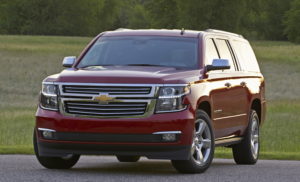
Auto Recyclers Association blasts GM for ADAS-related position on fascias
By onAnnouncements | Associations | Business Practices | Repair Operations | Technology
The Automotive Recyclers Association on Friday said it had “extreme disappointment” over General Motors’ recent position banning aftermarket, recycled and reconditioned bumper fascias on vehicles with advanced driver assistance systems.
General Motors’ position statement earlier this month reflects fears that deviating from factory fascia specs will compromise automatic safety systems behind the bumper cover.
“General Motors DOES NOT APPROVE the use of aftermarket, reconditioned, or salvage Bumpers/Fascias on GM vehicles equipped with ADAS,” GM wrote. Such parts might have “different material specifications than what was designed, tested and validated for use with ADAS.” (Emphasis GM’s.)
The ARA called that statement incorrect in a news release Friday, arguing recycled parts were OEM parts.
“The fact is, the genuine, original equipment manufacturer (OEM) recycled parts that ARA members sell are the very same parts manufactured by General Motors,” ARA interim CEO Sandy Blalock said in a statement. “They are genuine GM parts, designed by GM and built to meet their requirements for fit, finish, durability, reliability and safety. For the company to effectively ban the reutilization of their own parts speaks not to a commitment to safety, but rather a commitment to forcing lower-cost alternative parts out of the market.”
Lumping such components in with reconditioned and aftermarket parts was unfair, Blalock indicated.
“This is just another example of an auto manufacturer purposefully mischaracterizing recycled OEM parts to mislead consumers,” he said in a statement. “ARA is very concerned that General Motors and other manufacturers are becoming more aggressive in their attacks on the use of recycled OEM parts. We continue to urge the Federal Trade Commission, legislators, consumer groups, and other stakeholders to help hold auto manufacturers accountable for their attacks on recycled OEM parts utilization.”
General Motors had not yet responded to an email request for comment late Friday afternoon. But the OEM in a 2016 position statement banning salvage parts argued that some recycled parts might actually be reconditioned ones, or affected in some other fashion.
Salvage or recycled parts:
• May have compromised crush zones due to previous()repairs
• May have additional layers of refinish materials affecting long term durability and appearance of repair
• Additional layers may be a factor in new panel installations too
• Will require additional time to prepare due to variations in delivered assembly component
content
• Lead to more complex repairs due to variations in how the assembly is stored, processed,and
shipped to a repair center
• May have been exposed to use and storage conditions that have never been considered by
the( )manufacturer (Minor formatting edits.)
Under General Motors’ June ADAS-fascia position statement, some of these issues would render a recycled bumper cover unsuitable. The OEM banned any repair other than “topcoat refinish,” and the “topcoat refinish material thickness of repaired ADAS Bumper Fascia systems must not exceed 13 mils in thickness.”
Recycler errors have occasionally been known to lead to a shop receiving an aftermarket part instead of the recycled OEM part ordered.
The ARA wrote Friday that its members’ quality control means General Motors vehicle owners can trust their recycled parts.
“To ensure that the recycled OEM parts they provide meet customer expectations, ARA member facilities employ multi-step quality control precautions,” the trade group wrote. “The professional automotive recycling industry has become increasingly sophisticated in methods of processing, identifying, evaluating and inventorying parts and assemblies that are harvested from total loss vehicles. For example, at the typical professional automotive recycling facility, these processes may include: taking images of the vehicle and its component parts to track vehicle part record, review of a vehicle’s build codes, assessing the extent and type of any damage, and checking the vehicle identification number (VIN).”
More information:
“General Motors Ban on Recycled Bumpers a Disservice to Consumers”
Automotive Recyclers Association, June 15, 2018
“Bumper/Fascia Replacement with Advanced Driver Assistance Systems (ADAS)” position statement
General Motors, June 2018
“Use of Salvage and Recycled Parts” position statement
General Motors, August 2016
General Motors position statements
Featured image: The lower front fascia of the 2015 Chevrolet Suburban LTZ shown here was redesigned to no longer feature exposed tow hooks to accommodate new radar technology. (Copyright General Motors)
